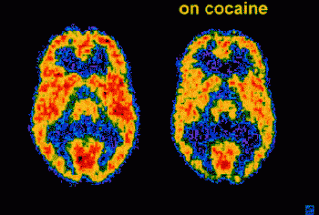Cocaine Effects On The Body Parts
The Brain
Overdose can cause death which is not uncommon. Cocaine may create increase in blood pressure and the out come can be bleeding within the brain. Limitation of brain blood vessels can also cause a stroke. The overdose of cocaine can also cause breathing and heart problems which can also lead to death.
Cocaine operates by blocking the reuptake of the neurotransmitters dopamine, norepinephrine and serotonin in the brain. Hence, these neurotransmitters stay in the synaptic cleft for a longer time. Research has also shown that cocaine can also cause the release of dopamine from neurons in the brain.
Cocaine can also affect the peripheral nervous system. These effects include constriction of blood vessels, dilation of the pupil and irregular heart beat.
Cocaine Use During Pregnancy
According to some studies, cocaine causes the fetuses to grow slower. Newborns that have been exposed to cocaine during the nine month gestation period have smaller heads.
The good news is, the bodies and the heads of such babies ultimately catch up when they grow older. That is only if the parents take better care of their children after they are born.
IQ is also affected. Children that have been exposed to cocaine during the gestation period normally have a lower IQ than those who aren't exposed to cocaine. The inconsistency is between 2 to 4 points on a ordinary IQ scale. Another effect is that children that have been exposed have problems dealing with tasks that oblige immediate and sustained visual thinking.
The Nose
Mostly users snort cocaine and due to this they might suffer from nosebleeds, sinusitis, hoarse and sore throats and stuffiness and runny nose. In harsh long-term use, cocaine will corrode the mucous membrane on both sides of the septum and create a hole in the cartilage that divides the nostriles. This can lead to lifelong problems with nose whistling, secretions, crusting and nosebleeds.
The Respiratory System
Although smoking cocaine in freebase or rock form is the most general way to damage the respiratory system, all users will suffer from depressed respitory system no matter how they digest the drug. After long-term usage the result may be either shortness of breath, difficulty swallowing, bronchitis, chest pain, unmanageable coughing, and also a collasped lung, respiratory failure and eventually death.
The Cardiovascular System
The sensetive nervous system, which is handled by the discharge of adrenaline, powerfully affected by the use of cocaine. This system reacts with cocaine and stimulates the heart rate, highblood pressure and arrhythmia and decreasedblood flow to the heart. The mixture of these symtoms can lead to a heart attack.

